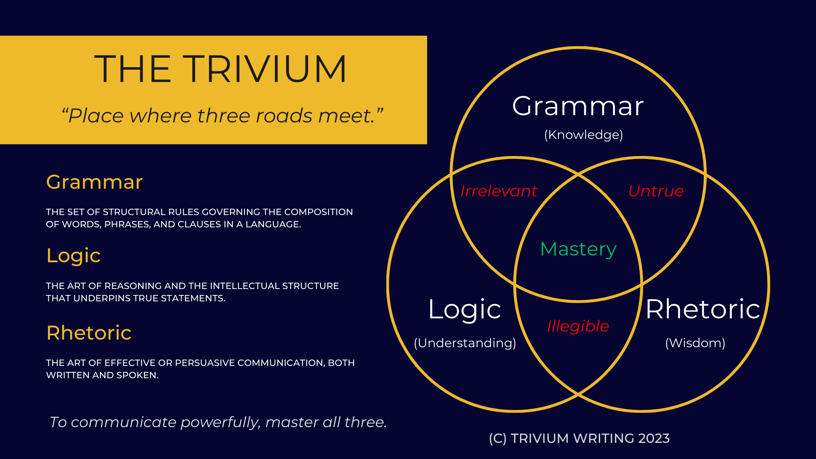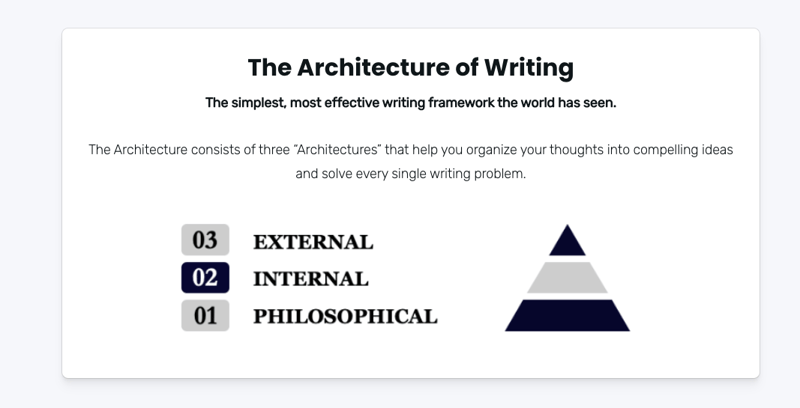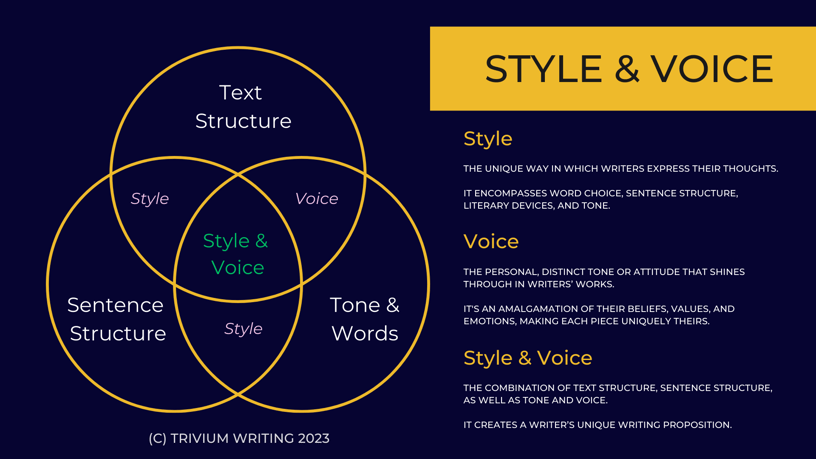How to Improve Your Writing Skills: The Trusted Guide
Writing changed my life. But it didn’t start that way.
When I first set out to become a writer, I did what most people do: I consumed endless writing tips, tried to mimic successful authors, and told myself that with enough practice, it would all come together. It didn’t. Not until I stopped relying on tips and started building a method.
Over the past decade, I’ve written several books and coached more than 130 clients—entrepreneurs, executives, professionals, and aspiring authors. Most came to me frustrated. They knew they had something meaningful to say, but couldn’t get the words right. The truth? Writing doesn’t become easier by pushing through. It becomes easier when you understand it.
This guide distills everything I’ve learned coaching professionals and ghostwriting for leaders into one comprehensive approach. Whether you’re trying to write blog posts, internal memos, a nonfiction book, or content to build your brand, the principles here will help you write with clarity, structure, and purpose.
Because improving your writing isn’t just about putting better words on the page. It’s about thinking like a writer—structuring your ideas like an architect, connecting with readers like a host, and sharpening your language like a craftsman.
If you’ve struggled with writing—if it takes too long, feels unclear, or never sounds like you—this guide will change that. And if you’re already a strong writer but want to level up, this framework will give you the tools to go from competent to compelling.
Let’s begin by addressing the question every writer faces, even seasoned ones:
Why does writing feel so difficult in the first place?
Table of Contents
- Why Writing Feels So Hard
- What Most Writing Advice Gets Wrong
- The Writing Roadmap You’ve Never Been Taught
- Mastering the Writing Trivium
- The Architecture of Writing
- Style and Voice
- Practical Ways to Improve Your Writing
- How Trivium Writing Can Help You Level Up
Why Writing Feels So Hard (And Why You’re Not Alone)
Writing is one of the most misunderstood skills in modern education. Schools often treat it as a technical exercise—a matter of punctuation, spelling, and word count. You're told to write five-paragraph essays about books you didn’t choose, in formats you didn’t invent, for teachers who can’t always write themselves. It’s no wonder so many people feel blocked before they even start.
As reported in The New York Times, many teachers receive little to no training in how to teach writing. Worse still, many of them lack confidence in their own writing. Yet this is where most people’s writing education begins and ends.
Add to that the rise of generative AI tools, and now many believe writing can simply be outsourced to ChatGPT. While AI can support your writing process, it can’t replace your thinking process. Tools don’t give you clarity. They reflect the clarity you already have—or the lack of it.
Even accomplished authors and thinkers often struggle to explain how they write. I once asked a bestselling author with multiple New York Times hits how he organizes his ideas. His response? “I print everything out, shuffle the pages, and send it to my editor.” He was half-joking—but only half.
Being a strong writer doesn’t mean you understand writing. Teaching writing requires a different skill set altogether, one I’ve cultivated by working directly with clients from across industries—coaching, technology, finance, education, and beyond.
Here’s what I’ve learned:
Most people are not “bad writers.”
They’re just using a broken framework.
Once you shift your thinking and adopt a real method—one that shows you not only how to write, but how to think as a writer—everything starts to change. You stop dreading the blank page. You stop feeling like every sentence is a gamble. You gain control.
And that’s what this guide gives you: not just tips, but a framework that rewires your relationship with writing.
So let’s look at where most writing advice goes wrong—and why it keeps writers stuck.
What Most Writing Advice Gets Wrong
Most writing advice feels helpful—until you try to use it.
You’ll hear things like:
“Use active voice.”
“Write short sentences.”
“Cut unnecessary words.”
“Know your audience.”
These are fine principles. But when you sit down to write, they don’t show you where to begin, how to organize your ideas, or what to do when the words don’t come. They tell you what a finished piece should look like—not how to get there.
That’s because most advice treats writing as a surface-level activity. It focuses on output—sentences, paragraphs, word count—without addressing the underlying process that produces good writing in the first place.
Think of it like this: if you’re trying to build a house, being told “use strong beams” and “seal the roof” won’t help you if no one has shown you how to read a blueprint or lay a foundation. That’s how most people approach writing—relying on tips without a structure.
What separates successful writers from stuck writers isn’t talent. It’s that successful writers think structurally. They treat writing like a process of assembling ideas, testing logic, and crafting language with intent.
When you focus only on the technical level—grammar, word choice, sentence length—you neglect the deeper architecture of your thinking. That’s why, no matter how many tips you collect, your writing doesn’t improve in a meaningful way.
And this is where writing coaching makes all the difference.
When I work with clients, we don’t begin with their sentences. We begin with their thinking. We look at their ideas, their goals, their audience, and the purpose of their writing. From there, we construct a plan—a blueprint—for what their piece is supposed to do and how to build it.
Because no writing tip can fix a piece that’s structurally broken.
What you need isn’t another list of tricks.
You need a roadmap.
In the next section, I’ll show you the exact roadmap I use with clients—from CEOs writing keynote speeches to consultants publishing thought leadership articles. It’s the same roadmap I use when ghostwriting books, writing proposals, or editing high-stakes documents.
This is how you improve your writing systematically. Let’s explore that system.
The Writing Roadmap You’ve Never Been Taught
Every writer needs a roadmap. Not a collection of tips. Not a list of dos and don’ts. A true roadmap—one that shows you how to move from idea to finished draft with clarity and control.
This is the foundation of the Trivium Writing Roadmap, the method I’ve developed over years of writing books, coaching clients, and solving real writing challenges across industries. It’s not theory. It’s not recycled advice. It’s what works—consistently.
The roadmap starts by shifting how you see writing. Once you understand this new mental model, everything else falls into place.
.png?width=341&height=853&name=3%20(1).png)
1. See Writing as a Dinner Party
You’re not yelling into a void. You’re joining an ongoing conversation.
When you write, imagine entering a dinner party where the topic is already being discussed. Your job is to listen first, then offer something meaningful—your angle. When you treat writing as a conversation, not a lecture, you naturally write with empathy and relevance.
2. Start with a Question
Strong writing starts with curiosity.

Before you make an argument, explain a concept, or describe a situation, ask yourself: What question am I trying to answer?
Questions give structure. They prevent rambling. And they connect you with your audience—because they’re wondering the same thing.
If you struggle to find your starting point, try using tools like mind mapping, free writing, or starbursting to surface ideas and generate questions. Writing flows more easily when it’s driven by inquiry, not pressure.
3. Understand Angle and Relevance
Your angle is your unique contribution.
Your relevance is why the reader should care.
.jpg?width=816&height=545&name=ryoji-iwata-5siQcvSxCP8-unsplash%20(1).jpg)
Too many writers jump straight into content without clarifying either one. The result? Bland writing that feels generic. When you identify your angle—what you bring to the table—and connect it to something the reader cares about, you create engagement.
Without relevance, your writing may be clear but meaningless. And without angle, it’s just recycled noise.
4. Know the Four Writing Goals
Every piece of writing serves one primary purpose.
It will either:
-
Describe (what is)
-
Explain (how it works)
-
Narrate (what happened)
-
Persuade (why it matters)
.png?width=816&height=459&name=FREE%20COMPLETE%20BOOK%20CLARITY%20WORKSHOP%20(5).png)
Pick the wrong goal, and your writing falls flat. Pick the right one, and every sentence has direction. For example, if you’re writing a business proposal, you’re not describing—you’re persuading. If you’re writing a tutorial, you’re explaining.
Each goal maps to a reader’s question. Choose your goal based on the outcome you want to create.
5. Frame Writing as a Journey
Writing is movement. It’s transformation. It takes the reader from Point A (where they are now) to Point B (where you want them to be).

That’s why structure matters so much. You’re not just filling space with words—you’re leading the reader somewhere. If you don’t know where that somewhere is, your writing will wander.
Think about what transformation your reader should experience by the end of your piece. What should they understand, believe, or feel differently? Then build your structure to create that shift.
These five steps are the thinking layer of writing. They come before grammar. Before sentence length. Before editing.
They are the architecture behind clear, purposeful communication.
But this is only the beginning.
Once you start thinking like a writer, you also need to master the mechanics.
That’s where we go next: into the Trivium—the foundation of all powerful writing.
Mastering the Writing Trivium (Grammar, Logic, Rhetoric)
The word Trivium comes from Latin and means “the place where three roads meet.” In medieval education, it referred to the three foundational disciplines of communication: Grammar, Logic, and Rhetoric.

At Trivium Writing, we’ve revived this timeless model—not as a throwback, but as a framework that solves real-world writing problems. Whether you're writing a report, a blog post, a book, or a white paper, your success depends on how well you apply all three.
Grammar — What You’re Saying
Grammar isn’t just punctuation and spelling. It’s the set of rules that govern how you form sentences, structure paragraphs, and deliver meaning. It’s the external architecture—what your reader sees and interprets on the page.
When grammar fails, your writing becomes hard to follow. But when grammar is strong, readers stop noticing your words and start absorbing your ideas.
Ask yourself: Are my sentences clear, coherent, and free of ambiguity?
Logic — How You’re Saying It
Logic is the internal architecture of your writing. It’s how your ideas connect and build on each other. Do your paragraphs follow a coherent structure? Is your argument airtight? Are you answering the reader’s implicit questions as they go?
Most writing issues aren’t about grammar—they’re about logic. A clear sentence in a disorganized paragraph is still confusing. Logic ensures your writing makes sense.
Ask yourself: Does each idea naturally lead to the next?
Rhetoric — Why It Matters
Rhetoric is the philosophical architecture of writing. It’s the emotional and persuasive core. It’s what moves people to care, act, or believe.
Too often, writers focus on correctness and clarity but forget about persuasion. Even an internal email needs rhetorical strength—otherwise, it’s just information without impact.
Ask yourself: Why should my reader care? What am I asking them to believe, feel, or do?
Now here’s the catch: you need all three.
-
Grammar without logic is legible but incoherent.
-
Logic without rhetoric is clear but unconvincing.
-
Rhetoric without grammar is passionate but messy.
When you balance all three, you don’t just write well—you write with force, clarity, and presence.
This is how I train clients at every level—from first-time authors to executive leaders writing thought leadership content. We don’t just fix sentences. We strengthen their thinking and align it with strategy and style.
In the next section, you’ll discover how we bring the Trivium to life through a system I call The Architecture of Writing—a practical method to apply grammar, logic, and rhetoric to any project.
The Architecture of Writing: A Real Method
Knowing what great writing consists of—grammar, logic, and rhetoric—is only the beginning. The next step is implementation.
This is where most writers fall short. They understand the components, but they lack a system to put them together. So they write with uncertainty, revise endlessly, and still feel unsatisfied with the final result.
That’s why I created The Architecture of Writing—a step-by-step method for applying the Trivium to any piece of nonfiction writing, whether you're crafting an article, a speech, a proposal, or a full-length book.

It’s a tool I’ve used with over 130 clients, and it works because it provides structure without suffocating your creativity.
The Architecture Framework: Three Layers of Writing
1. External Architecture (Grammar)
This is the visible layer—what your reader actually sees. It covers text structure (topic, chapters, paragraphs, sentences) and sentence structure (phrases, clauses, word roles).
Mastering this architecture ensures your writing flows smoothly and appears polished.
2. Internal Architecture (Logic)
This layer is invisible to the reader but felt in every paragraph. It includes your community, angle, relevance, thesis, goal, and equation—the internal logic that makes your writing coherent.
This is where your ideas are shaped, sequenced, and justified.
3. Philosophical Architecture (Rhetoric)
This layer grounds your message in a larger human or societal context. It includes concepts like the individual, family, community, state, and civilization.
These aren’t abstract labels—they’re levers of persuasion that let your message resonate deeply with readers.
Here’s what this method changes:
- You stop guessing where to start.
- You know how to structure your argument.
- You can assess why a paragraph feels weak.
- You eliminate filler not by instinct, but by principle.
Most importantly, this method works no matter your genre or level. I’ve used it to write memoirs, thought leadership articles, white papers, and brand copy. I’ve taught it to CEOs, coaches, PhDs, and first-time writers.
It’s universal because it’s built on the fundamentals. And like any good framework, it’s flexible enough to suit your voice—but sturdy enough to guide your process.
In the next section, we’ll explore how this method leads naturally into developing your writing style and voice—two of the most misunderstood (and misused) concepts in writing.
Style and Voice: What They Are and How to Find Yours
Most writers obsess over style and voice before they’ve even built a foundation. They want their writing to “sound like them,” but they haven’t clarified their logic, purpose, or structure. That’s like painting a house before you’ve laid the bricks.
Your style and voice are not the starting point. They are emergent properties—they appear when your message, structure, and thinking are aligned.

What Is Writing Style?
Style refers to how you express your ideas: sentence rhythm, word choice, punctuation, paragraph structure. Some writers prefer long, winding sentences with layered clauses. Others are sharp and clipped, using one idea per line.
Style is both a personal preference and a strategic choice. It adapts to context. You don’t write an academic paper the way you write a blog post. And you shouldn’t write marketing copy like you’re composing a dissertation.
If you're writing nonfiction for influence—thought leadership, books, internal content—clarity should always outweigh cleverness. You’re not trying to impress. You’re trying to connect.
What Is Voice?
Voice is deeper. It’s the personality of your writing. It reflects how you see the world, what you value, how you relate to your reader. If style is the delivery, voice is the presence behind the delivery.
You could have a humorous voice, a calm and authoritative voice, a bold and provocative voice. It comes through not just in what you say, but in what you choose to emphasize—your examples, your tone, your values.
Finding your voice doesn’t happen in one sitting. It emerges through consistent expression. But it also requires clarity about your audience and purpose.
How to Develop Your Style and Voice
Instead of mimicking other writers, study them. Read with intention. Observe their sentence structure, transitions, rhythm, and tone. Then ask: What part of this resonates with me?
Experiment on the page. Write the same paragraph in three different tones. Try a formal version, a conversational one, and a punchier one. Vary your sentence length. Play with paragraph flow. Try writing with strict grammar, then loosen it.
Use The Architecture of Writing as a lens. The more you understand your External Architecture (text and sentence structures), the more control you have over your style. When you understand your angle and relevance (Internal Architecture), your voice becomes clearer—because it’s grounded in something real.
Remember: voice and style should serve your message, not distract from it.
If your writing feels stiff or inconsistent, don’t start with tone. Start with structure. Then refine.
In the next section, I’ll show you how to improve your writing through deliberate practice—not just more writing, but smarter writing. This is where everything comes together.
Practical Ways to Improve Your Writing (Daily & Long-Term)
Writing doesn’t improve through repetition alone. You can write for years and still feel like your ideas don’t land or your style lacks precision. Improvement requires something deeper: deliberate practice guided by structure, feedback, and purpose.
After working with 130+ clients—from executives and entrepreneurs to academics and first-time authors—I’ve seen what separates stagnant writers from high-performing ones. It’s not just talent or time. It’s how they practice.
Here’s how to make real, lasting progress.
1. Work on Projects You Love
You won’t sustain your growth by forcing yourself to write content you don’t care about. Even if your ultimate goal is to write business reports or white papers, you’ll grow faster by practicing through meaningful work.
That could mean:
-
Writing essays on ideas you’re passionate about
-
Starting a blog related to your expertise
-
Drafting fictional case studies that mirror real challenges
-
Rewriting content you admire using your own voice
Your brain learns faster when you’re emotionally engaged. And writing is no exception.
2. Use Deliberate Practice
Deliberate practice is focused, feedback-driven, and targeted at specific weaknesses. Unlike casual practice, it doesn’t just reinforce habits—it builds skill.
In writing, deliberate practice looks like:
-
Getting professional feedback on a draft
-
Rewriting a single paragraph five different ways
-
Analyzing your own work for structural flaws
-
Isolating one skill (e.g., transitions, sentence variety, paragraph cohesion) and drilling it
This is the kind of practice we use in Trivium Writing Coaching, where clients bring real-world projects and we refine them together—word by word, line by line. It’s how a good writer becomes great.
3. Write Before Breakfast
One of the best productivity habits I teach clients—especially busy professionals—is to write first thing in the morning. Even 30 to 50 minutes a day can dramatically improve your output.
Why it works:
-
You’re less mentally cluttered early in the day
-
You write before distractions multiply
-
You build consistency without relying on motivation
This habit helps you prioritize writing before the demands of your day pull you away from it.
4. Join a Workshop or Work With a Coach
Writing in isolation is slow. Feedback accelerates learning. Accountability sustains progress.
Joining a workshop or working with a coach provides:
-
Real-time feedback on structure, clarity, and tone
-
Accountability to write and revise consistently
-
Insight into your blind spots and habits
-
Strategic support for large projects like books or series
You don’t need a coach forever. But the right coach at the right time can save you years of trial and error.
You don’t need more hours. You need better systems, targeted practice, and focused feedback.
Writing improves when it becomes strategic.
Next, let’s explore how Trivium Writing supports writers at every level—and how we can help you build the skills, habits, and confidence to write powerfully and consistently.
How Trivium Writing Can Help You Level Up
Most people try to improve their writing alone—and hit a ceiling. They know they’re capable of more, but no matter how many books they read or articles they bookmark, their writing doesn’t evolve. That’s not a motivation problem. It’s a structure problem.
At Trivium Writing, we specialize in helping professionals, thought leaders, and aspiring authors break through that ceiling—whether they’re writing a book, developing their brand, or building internal communication skills.
Here’s how we do it.
The Architecture of Writing: Our Signature System
We don’t teach writing as guesswork or inspiration. We teach it as a discipline, built on grammar, logic, and rhetoric, and applied through The Architecture of Writing framework.
This system helps you:
-
Organize your thinking clearly
-
Align your message with your audience
-
Write content that persuades, informs, or inspires—on demand
It’s not a template or formula. It’s a method that adapts to your goals, your projects, and your voice.
Writing Coaching vs. Consulting: Which Do You Need?
Writing Coaching
Ideal if you need help with mindset, clarity, consistency, or accountability. Coaching helps you develop your writing skills—by improving how you think and write.
Clients come to coaching when:
-
They’re stuck at the start of a project
-
They want to sharpen their writing habits
-
They’re unsure if their ideas make sense or land powerfully
Writing Consulting
Perfect if you’re an experienced writer or leader who needs strategic input on structure, messaging, and positioning. Consulting is more hands-on—we can co-create with you, offer developmental edits, and guide complex projects to completion.
Consulting helps when:
-
You have a draft but it’s not working
-
You want your writing to serve a larger business or brand goal
-
You need expert help organizing and executing a big idea
We Also Offer:
-
Editing Services to polish your final drafts
-
Publishing Support to bring your book to life professionally
-
Proofreading for business-critical documents
Whatever your goals—publishing a book, building a platform, improving your business writing—Trivium Writing offers the structure and support to help you move forward with confidence.
Writing is too important to leave to trial and error.
Let’s make it something you do well, consistently, and with confidence.
Ready to get started? Book a Free Consultation.
Writing Is a Skill. Master It Like One.
Writing is not a talent you’re born with or a gift reserved for the select few. It’s a skill—and like any skill, it can be learned, practiced, and mastered.
I’ve seen entrepreneurs turn ideas into books. I’ve watched professionals find their voice and lead more effectively. I’ve helped first-time writers publish with confidence. None of them had a magic formula. They simply followed a method, stayed consistent, and asked for help when needed.
You don’t need to become the next Hemingway.
You just need to write with purpose, structure, and clarity.
If you’ve read this far, you already care about becoming a better writer. That’s your edge. The next step is to stop relying on inspiration and start applying a system—one that works across formats, projects, and industries.
This guide gave you the roadmap. Now it’s time to walk it.
Use the Trivium. Apply the Architecture. Practice deliberately.
And if you want expert support—whether through coaching, consulting, or editing—we’re here to help you every step of the way.
Book your free consultation here and let’s talk about your writing goals.
Your writing can become one of your greatest tools for clarity, leadership, and impact.
Let’s build that together.
Article by Leandre Larouche
Leandre Larouche is a writer, coach, and the founder of Trivium Writing.

-1.png)



.png?width=352&name=SERVICES%20IMAGES%20(42).png)
-2.png?width=352&name=SERVICES%20IMAGES%20(10)-2.png)
-2.png?width=352&name=SERVICES%20IMAGES%20(12)-2.png)